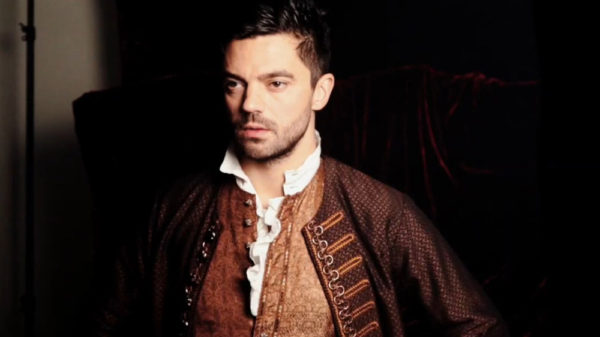John Wilmot, the Second Earl of Rochester, was, to use a modern phrase, a bit of a lad.
Drinking in excess, staying out all hours with his ‘merry gang’ and sleeping with anyone he wished to have his wicked way with.
Dominic Cooper’s ridiculous good looks and swagger make him almost perfect for a role that explores his immoral behaviour and eventual self-destruction. You could almost hear chants of “down it! Ladsladslads” as you entered the auditorium…
The dialogue from Stephen Jeffreys is a feast of language, with far too many quotable phrases from nearly all of the cast to pick even a top five. The cast itself were superb, my personal favourite being Nina Toussant-White as Jane, the Earl’s preferred prostitute. With a raft of television credits to her name, Toussant-White stole each scene in which she appeared and deserves to have more high profile roles.
Another highlight was Ophelia Lovibond as actress Elizabeth Barry who the Earl takes a shine to, falls in love with and impregnates – her self-assured Barry proved the perfect foil to Cooper’s lothario. The female cast members were the highlight of the second act, opening with a song about dildos that surely left many an attendee choking on their interval ice creams.
The merry gang themselves were a joy to watch in every seen – Mark Hadfield as George Etherege and Richard Teverson as Charles Sackville were particularly brilliantly pompous, with Will Merrick as Billy Downs lowering the average age of the group. Will Barton as the aptly named Tom Alcock, the Earl’s servant, brought a much needed dry wit and matter of fact tone to proceedings which arguably balanced the tone of the play.
Cooper opened the play with a short monologue on how we should resist all urges to like him and that we would be witness to all manner debauchery. Sadly, this did not appear to manifest itself – sure, we had the occasional extreme swear word and brief sexual behaviour but we couldn’t help but feel this was kept purposefully tame for a mainstream West End audience. There were a few moments of violence too that just didn’t ring true – perhaps the sense of danger is waning as they approach the end of their 12-week run.
Other than these gripes, Terry Johnson’s direction is superb and gives a real sense of 17th century playhouses inhabited by believable characters. Tim Shortall’s set design is a thing of wonder too with a simple wooden stage upon the stage where the majority of action takes place overlooked by a crumbling golden frame into which various projections set the scene throughout the play.
A strong first act was a little let down by the weaker second act and the failure to fulfil the opening monologue’s promises. Perhaps this was an intentional allegory to Wilmot’s life – full of promise and wasted potential that it almost managed to live up to.
![]()
Performed on 15 November 2016 at the Theatre Royal Haymarket in London.
Follow Bradley Barlow on Twitter.
Have you seen The Libertine? Let us know below…

